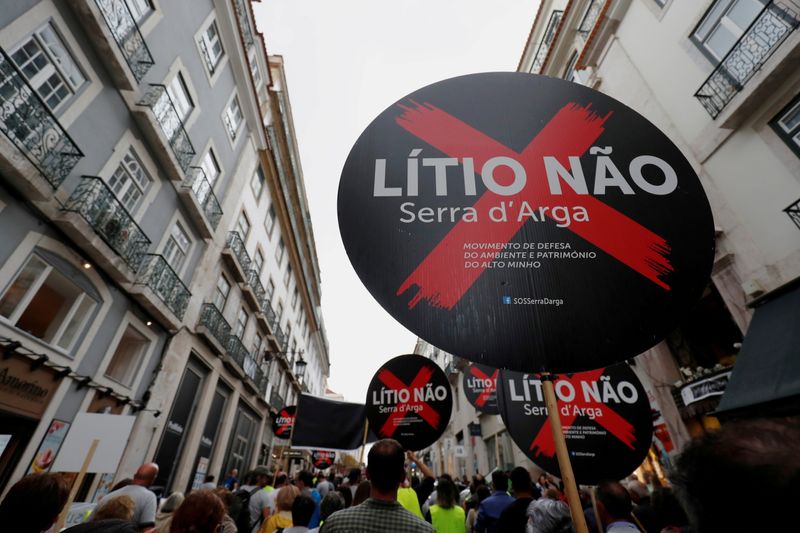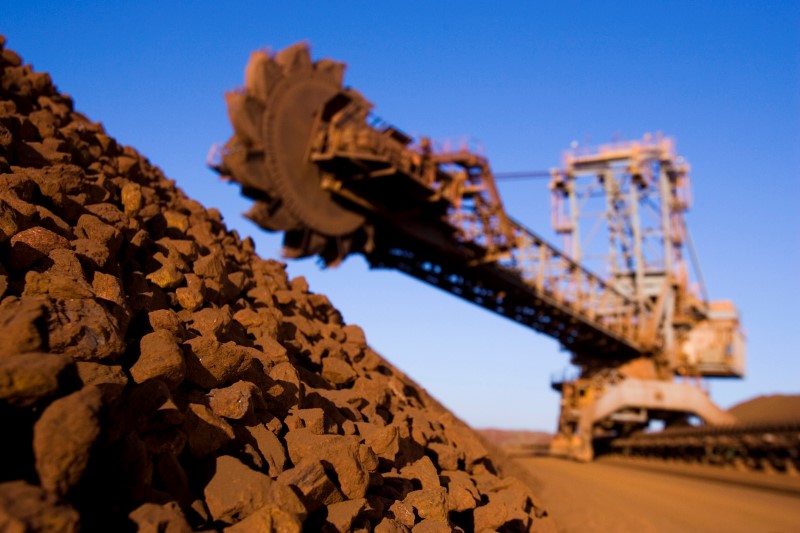By Catarina Demony and Sergio Goncalves
LISBON (Reuters) - Environmental worries have boosted anti-lithium sentiment across Europe and EU officials say it is crucial to show local populations that mining the metal used in electric car batteries is no longer a "dirty operation."
Tapping European deposits of lithium is an important part of the bloc's ambition to secure more of the battery value chain as carmakers roll out electric vehicles, with Portugal central to the bloc's bid to cut its reliance on imports.
The country is Europe's biggest lithium producer for the ceramics industry and its miners are now preparing to produce the higher-grade metal used in lithium-ion batteries.
Governments say mining could attract investment and create jobs but lithium projects face opposition from environmentalists and local communities who fear irreversible damage such as soil pollution or destruction of the natural habitat of various endangered species.
Speaking at a conference on so-called green mining in Lisbon on Wednesday, Portuguese Environment Minister Joao Matos Fernandes said more effort was needed to align economic and local interests and address the social perception of lithium mining as dangerous to the environment.
"Green mining must also be challenging such sentiments through the involvement of the local population in understanding the mutual benefits these projects could bring," he said.
Peter Handley, head of the European Commission's raw materials unit, said it was essential to let people know lithium mining would be done "the right way, in full compliance with regulations".
"Mining in the past was a very dirty operation," Handley said. "It is becoming highly technological these days."
Spain's Energy Secretary of State Sara Munoz also said it was "critical" to improve public awareness around mining, calling for social responsibility and an open dialogue on the subject.
Spain hopes to develop an ambitious cross-border lithium project with Portugal.

The European Environment Bureau (EEB) says mining will only gain public acceptance if the best technologies are used to mitigate environmental effects, and if companies comply with laws and respect local communities.
"Local people are on the front line," said Jeremy Wates, the EEB's secretary-general.
